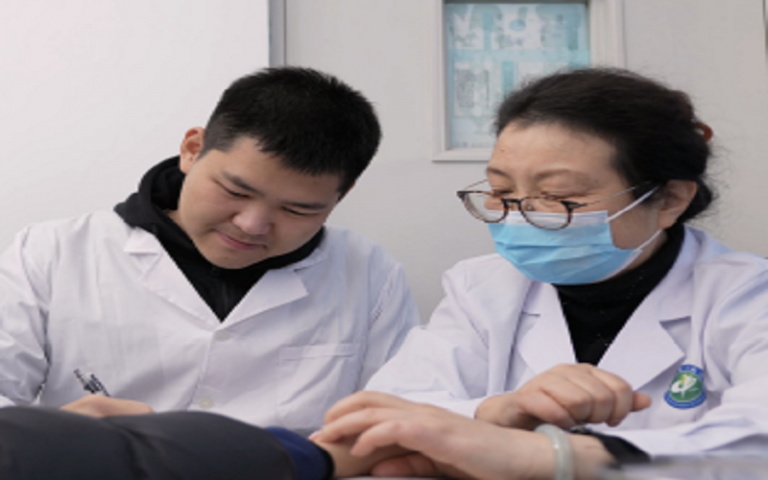
By Zaw Win Maung, A few years ago, a chance encounter with traditional Chinese medicine (TCM) sparked my deep interest in this ancient culture. As I began to delve into classical TCM texts, I discovered that they not only contained various diagnostic and treatment methods such as pulse diagnosis, acupuncture, and massage therapy, but embodied the wisdom of ancient Chinese philosophy, such as the unity of humans and nature and living in harmony with nature.
Captivated by the allure of TCM, I decided to pursue a systematic study. I applied to Yunnan University of Chinese Medicine, and I was overjoyed the day I received my admission letter.
At the beginning, I encountered significant challenges due to language barriers and cultural differences. The ancient Chinese classics and intricate processes of herb collection, identification and combination were quite daunting to me. Fortunately, I had the patient guidance of professors and the enthusiastic help of classmates to rely on.
I remember when I first started learning acupuncture, I was often too hesitant to actually use the needles. To encourage me, my senior classmates generously acted as patients, braving the discomfort to let me practice acupuncture techniques on their bodies. With their support and motivation, my acupuncture skills steadily improved, and my studies quickly got on track.
During my learning journey, the most memorable experience was my internship at the Yunnan Provincial Hospital of Traditional Chinese Medicine. There, I had the opportunity to participate directly in patient care. I looked forward to every Saturday afternoon when I could shadow my mentor.
Zaw Win Maung and his mentor working together at the Yunnan Provincial Hospital of Traditional Chinese Medicine. (Photo proviede by Zaw Win Maung)
To help me learn better, my mentor allowed me to observe and participate in pulse-taking and prescription writing alongside with her and the patients. After each patient consultation, she would give me a detailed explanation: what the patient’s pulse indicated, what it represented in terms of their conditions, and the role of each herb in the prescription. This approach helped shape my diagnostic thinking and was incredibly beneficial to me.
Even though this meant she could never leave work on time, she never stopped her meticulous teaching. As an ancient Chinese saying goes, “It’s easier to get a teacher of classics than a teacher of character.” I am deeply grateful for and cherish the teachers I have met on my learning journey in China, and I have personally experienced the importance of the master-apprentice relationship in TCM.
During my years of study, I have made many Chinese friends whose kindness and hospitality have deeply influenced me. When I felt anxious and exhausted from academic pressure, it was my classmates who helped me through those difficult times. They patiently helped me review my lessons, took me hiking and shopping, allowing me to experience the joys of life.
I remember the first time I was invited to a Chinese classmate’s family dinner. Sitting around a table covered by steaming dishes, tasting homemade specialties, and listening to the stories behind each dish – at that moment, I deeply felt the warmth and inclusiveness of the Chinese people.
I want to express my deepest gratitude to every teacher and friend I have met in China. Their guidance and support have greatly nourished me intellectually and emotionally. Every interaction and every patient act of assistance have become my precious memory, filling this journey with warm recollections.
My every day in China has been filled with challenges and surprises, and my progress has reinforced my conviction in the choice I have made. TCM has taught me not just the skills to heal and save lives but how to view life. The friendships I have built, transcending cultural and language differences, have become invaluable treasures in my life.
I have come to deeply understand that the power of culture lies not just in its uniqueness, but in its ability to connect hearts. I have discovered that people from different cultural backgrounds can forge strong connections. These experiences have not only influenced my career but also shaped my understanding of the world, making me more open-minded and inclusive.
On my future path, I hope to continue my studies in TCM. This is not just for my personal development; I also hope to share this profound and extensive knowledge with the world, allowing more people to understand and appreciate the culture of TCM.
I dream that one day I can promote TCM culture in my home country Myanmar and many other countries. I hope it can become a bridge connecting different cultures and peoples, contributing to mutual understanding and friendship among people from all over the world.
Carrying with me infinite gratitude and these profound insights, I will continue exploring TCM, bravely and resolutely.










